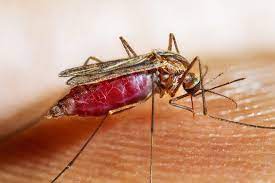Ghana has demonstrated remarkable progress in combating malaria, achieving a significant reduction in malaria-related deaths in recent years. Dr. Mark Nawaane, Chairman of Parliament’s Health Committee, reported fewer than 300 deaths attributed to malaria in the previous year, a testament to the nation’s efforts. However, he emphasizes the need for sustained and increased resourcing of the Malaria Control Programme to achieve complete eradication. Dr. Nawaane believes that with adequate resources, Ghana can significantly improve its malaria control outcomes. He highlights the importance of channeling resources towards activities proven to be effective in combating the disease. These include strengthening vector control measures, improving access to prompt and effective treatment, and supporting the anticipated rollout of malaria vaccines.
The launch of the Coalition of Parliamentarians to End Malaria in Africa (COPEMA) in Accra marks a crucial step towards strengthening continental partnerships in the fight against malaria. The coalition, comprised of parliamentarians from several high-burden African countries, aims to position lawmakers as key advocates for malaria elimination. Dr. Nawaane underscored the vital role of parliamentarians in securing domestic funding for malaria control programmes, particularly as international donor support dwindles. He argues that parliamentarians, as the ultimate authority on national budgets, are uniquely positioned to allocate necessary resources and ensure the sustainability of malaria control efforts. This shift towards domestic financing is crucial for long-term success in eradicating malaria across the continent.
A major challenge facing Ghana’s parliamentary efforts against malaria has been the instability of the Malaria Caucus due to high legislative turnover during elections. This frequent change in membership disrupts the continuity of anti-malaria initiatives and hinders progress. Dr. Nawaane expects COPEMA to play a crucial role in revitalizing and strengthening the Malaria Caucus, providing a more stable platform for sustained parliamentary action against the disease. The coalition’s support will help organize and consolidate parliamentary efforts, ensuring consistent advocacy and action even with changes in legislative membership.
COPEMA’s launch coincides with intensified global efforts to significantly reduce malaria deaths worldwide. The coalition’s focus on empowering parliamentarians aligns with this global push by ensuring that legislators are well-informed and actively involved in malaria control efforts. COPEMA seeks to educate parliamentarians about their crucial role in disease control, advocating for increased funding, and promoting evidence-based interventions. The coalition’s efforts are timely and strategically aligned with broader global health targets, contributing to a unified front against malaria.
Dr. Nawaane acknowledges the uneven distribution of malaria prevalence across Ghana, with the Upper West Region showing significant improvements while the forest zones of the Western Region continue to experience higher rates of infection. This regional disparity calls for tailored interventions that address the specific challenges of each area. He advocates for a comprehensive approach involving collaboration between parliamentarians, civil society organizations, research institutions, and NGOs. This collaborative strategy should encompass vector control, enhanced hospital treatments, and the effective rollout of malaria vaccines when they become available.
The establishment of COPEMA signifies a strategic shift towards sustainable domestic funding for malaria programmes and reinforces political commitment to enhancing healthcare systems across Africa. By empowering parliamentarians and fostering collaboration among various stakeholders, COPEMA aims to create a lasting impact on malaria control. The coalition’s work is crucial in bridging the funding gap left by departing international donors and ensuring the long-term sustainability of malaria control initiatives. COPEMA’s focus on Africa recognizes the continent’s disproportionate burden of malaria and the need for tailored solutions to address its unique challenges. The coalition’s efforts promise to significantly contribute to the global fight against malaria, bringing the world closer to achieving a malaria-free future.


